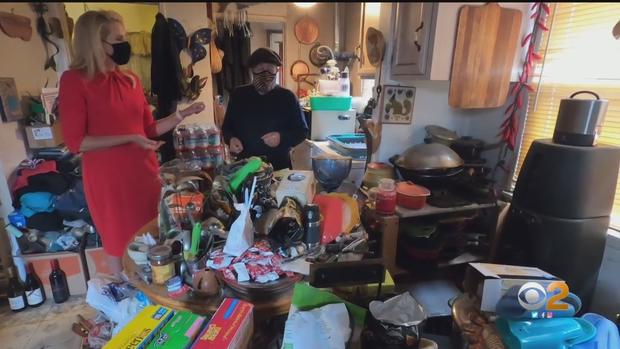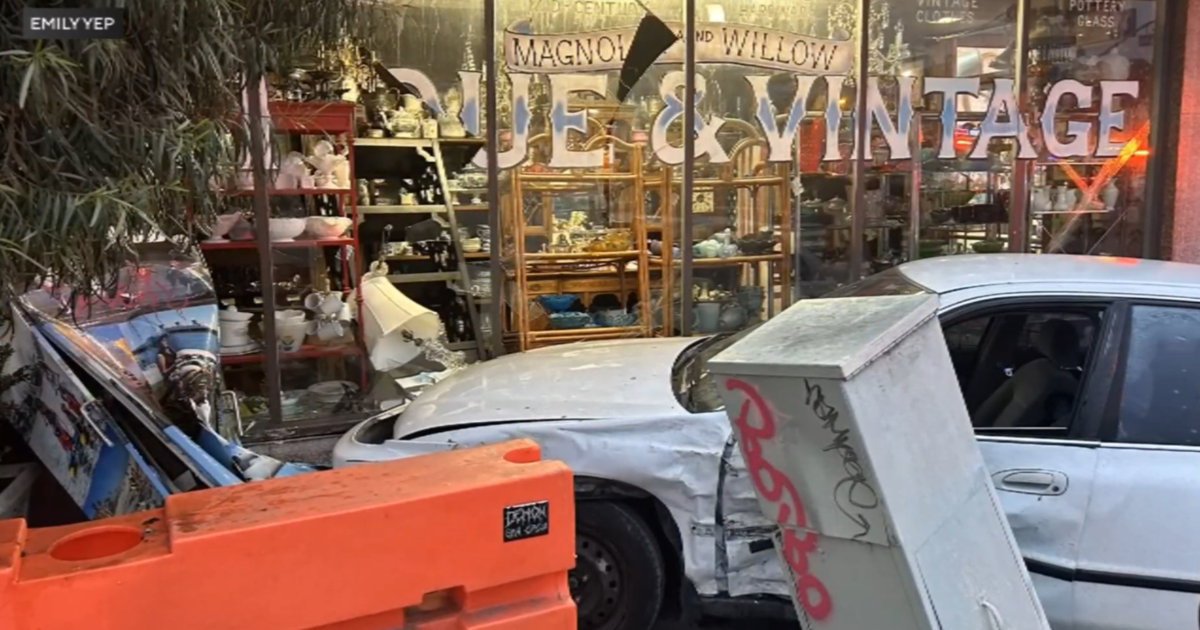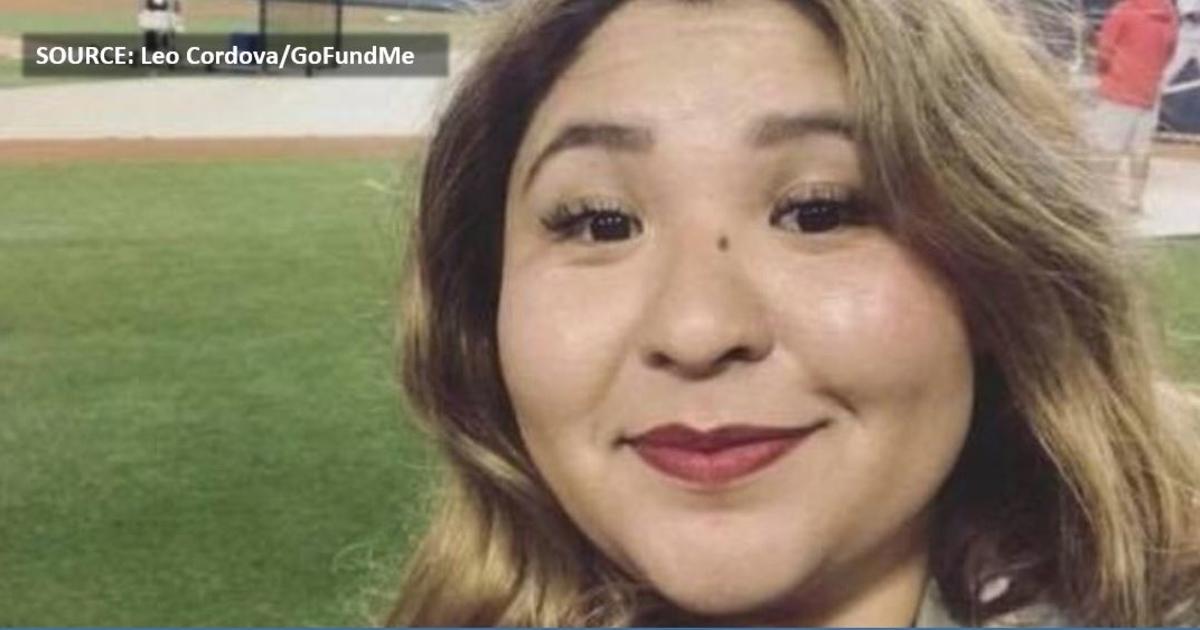Inside The Mind Of A Hoarder: 'We Are Isolated. We Are Shunned.'
GARDEN GROVE (CBSLA) — Every single item in Douglas Obando's Garden Grove home is accounted for, and there are thousands of items.
They are packed into the living room, stored in the kitchen and piled in the dining room of the house he shares with his wife and adult son.
"It wasn't anything that we went to, say, 'We want to be hoarders,'" Obando said.
For the past decade, the family has collected stuff for their eBay business — everything from artwork to old speakers and bobble heads to old computers and even DVDs and golf clubs.
"And it happened slowly over time to where you don't notice it," he said.
But their neighbors noticed, and the city of Garden Grove took legal action to clean both the property's interior and exterior in 2018. Now, three years later, the front yard remains clutter free, but the inside of the house and the backyard continue to accumulate items big and small.
"This is actually organized chaos," Obando said.
Still, Obando said he did not want to continue living like this.
"We are isolated," Obando said. "We are shunned, looked down upon and we're thought of as crazy."
Since 2013, hoarding has been recognized by the medical community and the World Health Organization as a mental illness.
"Hoarding behaviors and hoarding symptoms, it's not that they're distinctly different from those reasons that those of us who don't have hoarding save things." Dr. Kiara Timpano, an associate professor at the University of Miami and a leading expert on hoarding, said. "It's on a spectrum."
Timpano said hoarders just become attached to a wider swath of items and feel that attachment more intensely.
"So I've had some patients describe it as, 'If I were to get rid of this item, it would be like losing an arm,'" she said.
Obando reached out to CBS Los Angeles after seeing a report on a home in Granada Hills that the city paid $12,000 to clean up, but has since started to have items once again appear in the yard. He said he wanted to put a face to hoarding behaviors.
"This right here is a very scary feeling, being on camera and letting out," he said.
Obando's 86-year-old father owns the home and gave his son a long-term lease years ago. But faced with a more than $300,000 receivership bill for the forced cleanup of the home, the house is now for sale.
"Because of our mental illness, we could be facing homelessness," he said.
Timpano said most U.S. cities fail miserably at addressing hoarding by simply forcing a clean-up.
"Because what you're doing is that you're just bandaging it up," she said. "You're not actually treating the wound, you're not actually treating what gave rise to the problem to begin with."
There are no medications to treat hoarding, with therapy as the only treatment. Obando said he and his wife saw a therapist, but that was years ago.
"If it weren't because we're afraid and feel hopeless, we would not have reached out," Obando said.
A study done in 2018 found that there is more public stigma for people who hoard than for those who are in jail or those who have been diagnosed with a mental illness like schizophrenia.




